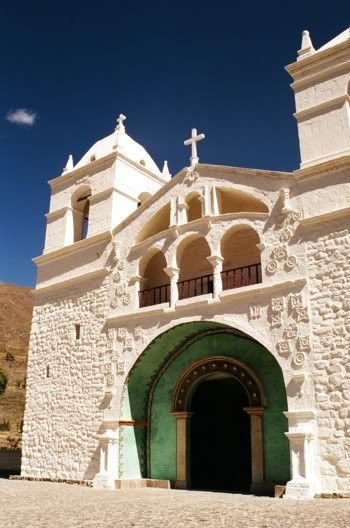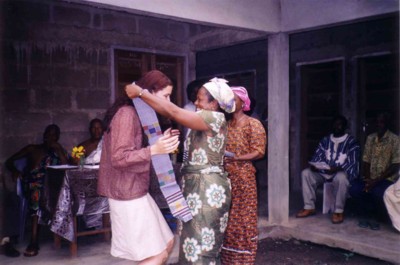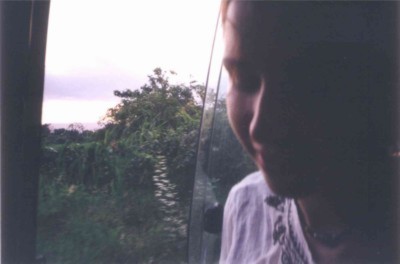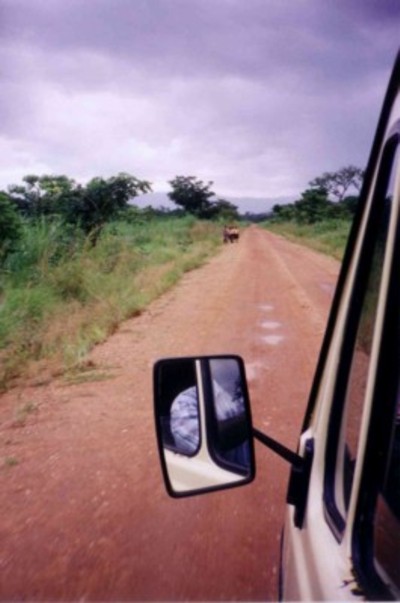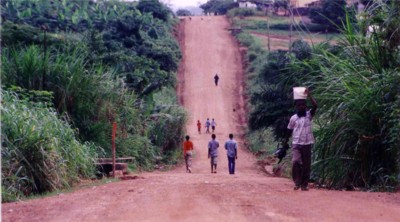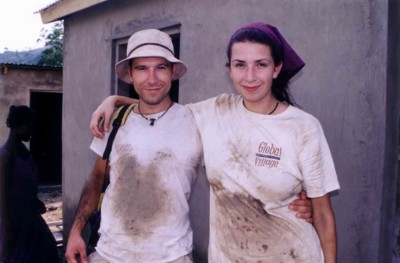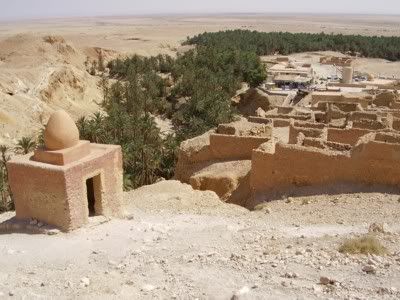 Dusty:Starlight:Culture
|
|
|
|
Longings for a different place
2003-06-11 10:51 a.m. Sometimes, I still experience culture shock pretty badly. Just yesterday, I was driving down rt. 46 near our house, and it was loud, noisy, smelly - there was a lot of construction going on and people yelling, beeping at each other and cursing. I shrank down in the driver's seat of my little saturn. I felt small and scared, overwhelmed by all the noise and visuals. It's funny how people here are afraid of Africa. I wonder exactly what it is they're afraid of? The non-development? Exposing themselves to the danger of nature? The fact that there, whites are a minority? I'm not ignorant enough to argue that there aren't implicit dangers to be faced when traveling to a third world country. But aren't there implicit dangers to be faced when traveling to a developed, western country? In New York, I've been harassed on the street, grabbed, and nearly pickpocketed. In England, I was harassed on the subway. In Italy, my purse was almost snatched. In Ireland, there was such an outbreak of that foot and mouth disease, that Mom and I came home with a touch of it. In France, my boss was mugged. In Taiwan, Steve almost died in an earthquake. Every place has it's problems. The ironic thing is, with lack of development, and a stable, more simple community, I have found that there AREN'T as many problems. Take, for example, the acquiring of "stuff". It's often stuff, material things, or perhaps lack there of, that drive people to steal, attack, grow jealous, want for power, etc. Humans are humans anywhere you go, and of course there's a certain amount of power people want to acquire, particularly over one another. The difference, however, that I observed in Ghana, at least, was the lack of a sense of entitlement. Here, when people buy expensive cars, it seems that the majority of them seem to feel they're entitled to the road as well, and disregard the fact that they must share it. Here, when students enroll in a class, many of them - especially lately - seem to think they're entitled to pass, since they're paying money, whether or not they do much work. This ethic - or perhaps lack of ethic - is missing from the culture in Ghana. What I found there were peaceful, hardworking people, who understood they had more than a flat screen tv at stake when they went to work. It seemed that there, who you were was not what you had but how you treated people. What a concept, right? I wish. I wish very much, in fact, that things were that way here. I wish that people would stop their cranky whining about cars and jobs and ex boy/girlfriends or sports teams and just be grateful that they're healthy and educated. Or living in a free market economy. Or able to CHOOSE what they want to do for a living. What luxury! But I'm afraid that would be too much to ask. Turning everything from women to sexuality to self esteem into a commodity makes everyone think that such things are easy, and can be bought. Why be nice, in other words, why take a good hard look in the mirror and consider how your actions affect others when you can buy friends? Or self-esteem or respect? That's what TV tells us, so it must be true. We have the power to choose in this country, and that is something I'm intensely grateful for. We have the best that the world has to offer - in medicine, in education, in access, in quality of life. So why are we de-evolving? Sure, extreme lack of essential resources, like food and water, make people prone to taking - and taking away the choice of another (by robbing, etc). I noticed, though, that despite the stereotype, that is more likely to happen in THIS country than in any other, particularly because social welfare systems are so good in other countries. Ghana is not utopia. They have their problems, and like any other African country, travelers there must deal with corrupt police, ridiculous government visa policies, risk of tropical disease and ...unfamiliar hygiene standards. What the country offers, though, in the warmth of its people, far outweighs these intimidating yet completely manageable threats. Some days, I can just remember leaning my head against the window during the long, slow drive through Hohoe to Amfoeta, the village where I worked. We'd be out just before the sun rose, so we could watch it come up, yellow and strong, as we rode. The road, unpaved, didn't interfere at all with the expanse of grasses that stretched on endlessly on either side of us. At times, the road almost got swallowed by the plains and seemed to disappear around the next bend, making us think we'd have to drive through the fields to get back onto the road. Trees were scattered about, great old trees of orange and green and yellow, that made you wonder just how long they'd been there when you looked at them. Every once and awhile, we'd hear monkeys, but they'd hardly ever come out and make themselves seen. Once we got into the first part of the village, the children - usually on their way to school in orange and brown uniforms - would run along side our car for a bit, waving and asking for our addresses (a bit like collecting trading cards for kids here, i think). Once we got into our work site, it was amazing to see the collaborative effort going on in building - everyone would help, and I mean everyone - so that this one new family could have a proper home with the funding that the volunteer organization had provided. I understood and explained, going into the project, that I knew nothing of building and feared I'd be useless. I asked the local masons and carpenters hired by the organization to help me learn, and they did gladly. By the second or third day, I was functional enough to be productive and provide enough help. The exchange and helping was so amazing to see - and so foreign to me as a city-dwelling westerner. After that experience, I (and steve too) don't quite know what to do with myself. Thank god for friends who can sympathize entirely - you get me through the cultural blahs.
Have a great day T |
||
